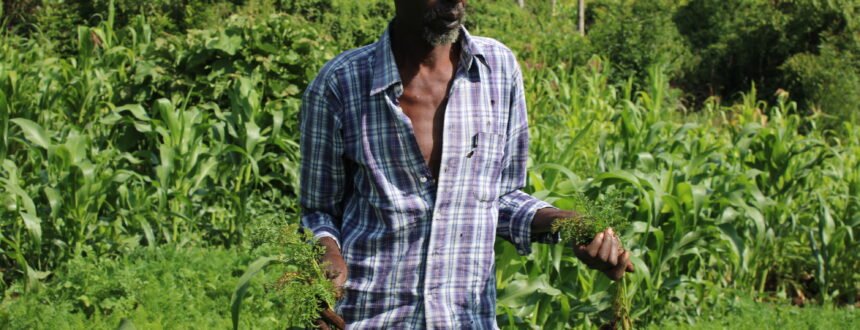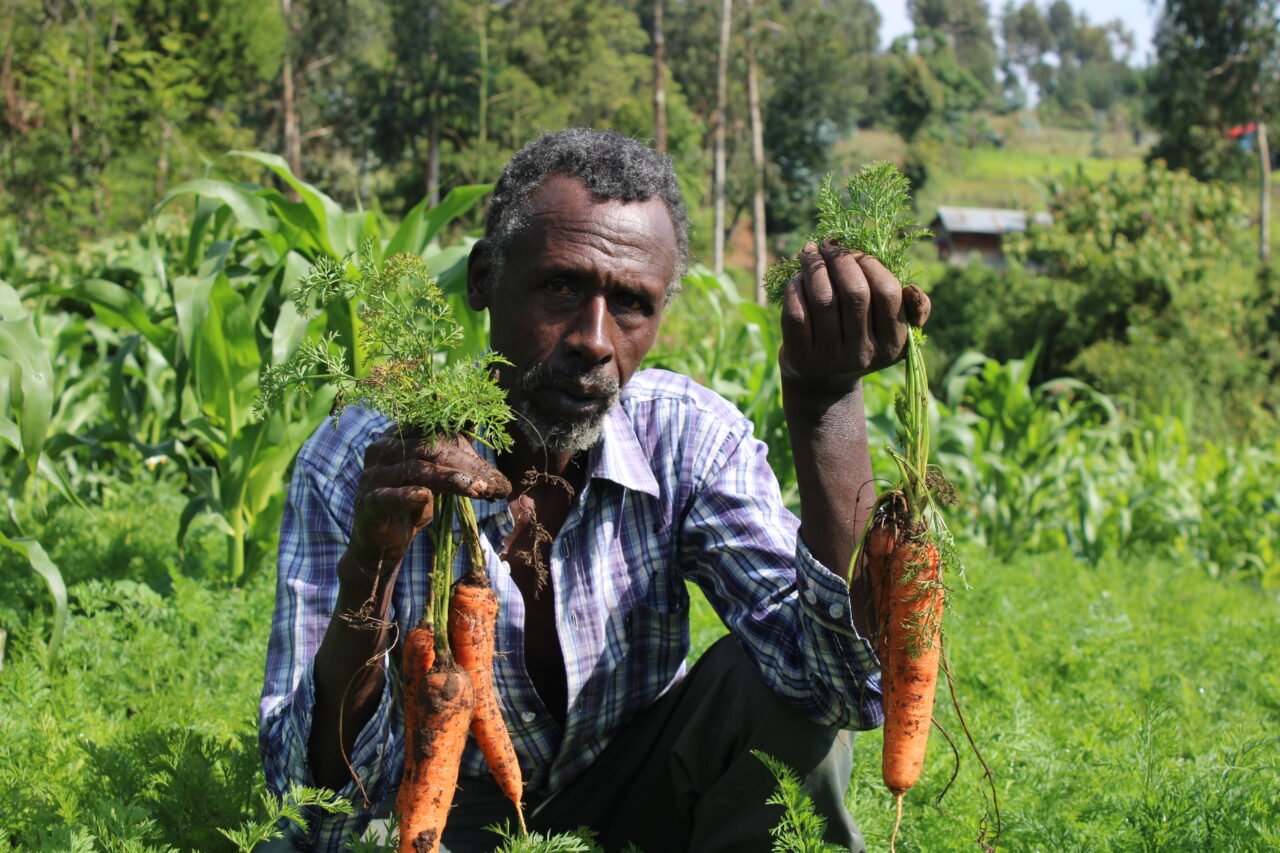Laikipia farmer takes a bite of carrot business, it’s crunchy and lucrative
Ngatia has grown the crop for 10 years, using the proceeds to educate his children in colleges and universities, besides buying two pieces of land and a two-acre farm
By WAIKWA MAINA
From afar, one longs to set foot on the vast green carpet in Thigio Village, Laikipia County. It looks like an international football stadium which has defied the harsh climate and scorching sun.
The carpet has a dark green hue, indicating a healthy crop in the arid land. And then, behold – an expanse of maize and carrots that one had presumed to be a football pitch. The carrots are intercropped with maize for good reason – smart climate farming.
Farmer Francis Ngatia explains that his main interest is the carrots, which are intercropped for two reasons. The maize provides shade, besides retaining moisture and repelling pests and insects.
“It is difficult to control pests and insects in carrot fields since the available insecticides will not penetrate the soils to where the pests and insects multiply. Also, due to the heavy canopy of carrots, it is almost impossible to effectively spray insecticides on the entire plant. But with intercropping, inspects and pests are drawn to the maize where it’s easier for me to control them,” explains the farmer.
Mr Ngatia has specialised in carrot growing for 10 years, and has used the financial proceeds to educate his children in colleges and universities, besides buying two pieces of land and a two-acre farm.
He says carrots require soft soil, emphasising that one must dig at least 30 centimeters deep. It’s easier to grow the crop in loam soils than in cotton-black soils, he states.
No commercial fertiliser
The farmer then prepares shallow furrows and applies manure mixed with soil. He does not use any commercial fertilizer during planting or at later stages.
That done, he sows the seeds in the furrows. Germination takes about two weeks, with a spacing of about 5 centimetres between the plants and 10 centimetres between the rows. This helps the tubers to enlarge freely.
With such spacing, Mr Ngatia uses about 2 kilos of carrot seeds on a one-acre farm. “After germinating, thinning is important to retain healthy plants and avoid nutrient competition. Also, when left to grow next to each other, the carrots become deformed, compromising the quality,” he explains.
After germination, a farmer must guard against pests and insects, as well as the common leaf rust disease, which has a penchant for carrots.
Mr Ngatia uses about 12 bags of manure on an acre of land, which he gets from his cows and sheep. He also sprays vegetative foliar fertiliser two-to-three weeks after germination, manually controls the weeds, and then waits for the harvest in about three months.
“I prefer growing carrots since they are not labour and capital intensive. They have a ready market in Laikipia where there is minimal farming due to adverse weather. The crop matures faster here due to the heat,” he says.

Water-pressure pump
The main work is irrigation, which must be done every week. Luckily, he uses a hydrum water pump, drawing water from River Matara. The pump is driven by water pressure and requires no diesel or petrol.
Before purchasing the hydrum pump, Mr Ngatia spent between KSh1,500 and KSh1,800 on fuel every week, which drastically affected his profit margins.
Were Mr Ngatia to purchase the manure, he would spend Sh150 per bag, equivalent to Sh1,800 in total, KSh1,000 for the vegetative folia, KSh4, 000 for the seeds, and KSh4,500 for land preparation, totaling KSh9,800 per acre, but not inclusive of the weekly irrigation which he does himself.
From one acre, Mr Ngatia harvests 10,000 to 12,000 carrots, selling a kilo at an average of Sh40, but sometimes between Sh80 and Sh100 when the market is good. The carrots are planted between the rows of maize, at a spacing of one meter. The maize yields an average of 5 to 7 bags an acre.
With such earnings, the farmer cannot compare his livelihood with that of casual workers in Nairobi and Kiambu, where he was an attendant at shops owned by traders of Asian extraction.
“Through farming, I have educated my six children through colleges and universities. I have also bought a two-acre farm and two commercial plots in Ndaragua town where I plan to construct commercial buildings,” he says.
Agronomist Milka Wangechi says carrot farming is good business. “Carrots grow as tubers and can be intercropped with maize, tomato and capsicum. Intercropping also helps in pest control. After planting, the soils should remain wet for better germination. Carrots can grow in almost all parts of the country, irrespective of the weather. But they perform best under irrigation,” says the agronomist.
She advises farmers to first understand the market trends before venturing into carrot farming so as to maximize the profits.



